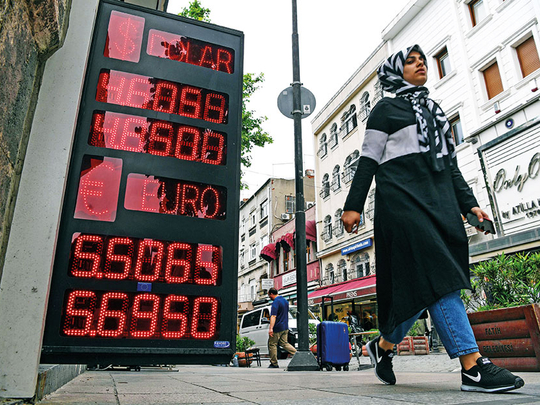
Dubai: Turkey’s central bank is in a bind and investors are about to find out how policy makers solve the dilemma of appeasing a president preoccupied with low interest rates and the need to raise borrowing costs to control the lira rout.
An unprecedented credit binge experiences in recent months would typically suggest a rate hike. Yet that’s something Turkish officials are afraid to do as President Recep Tayyip Erdogan believes that high borrowing costs cause inflation and wants to juice up the economy with ever lower interest rates. As a workaround, Turkey’s central bank has resorted to backdoor tightening.
On the heels of an upheaval in financial markets that sent the lira to a record low against the dollar, the monetary authority last week ceased to provide liquidity at its cheapest rate of 8.25% by suspending one-week repo auctions. It now tweaks the cost of funding on a daily basis, modifying the amount of liquidity available to lenders across its various rates.
The series of steps effectively increased the average cost of funding. This more complicated regime of multiple rates confounded analysts and investors in the past and was dropped after a lira rout in early 2018.
Inflation and lira rout
All this probably translates into the central bank holding rates when it meets on Thursday. Investors will be keen to hear what the Monetary Policy Committee led by Governor Murat Uysal has to say about the inflationary risks of the recent lira depreciation and the trajectory of its stealth tightening.
“Investors have again lost faith in the lira, with Turkey’s real interest rate falling to the lowest among the emerging markets amid an aggressive easing cycle. Erdogan, meanwhile, still expects interest rates to be reduced further.” saidZiad Daoud, chief emerging markets economist.








